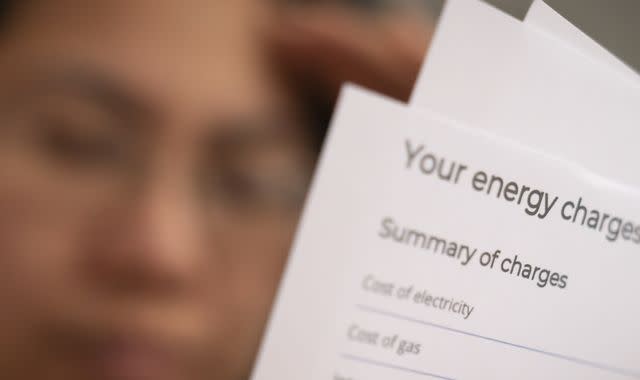Cost of living: Can I be evicted and will it affect my credit score? What happens if you can't pay your energy bills

An anonymous campaign urging people not to pay their energy bills this winter is gathering pace - but is it safe to do so?
Plans by Don't Pay UK have been called "highly irresponsible" by the government, and charities have warned against rushing to cancel your direct debit.
However, Britain is facing the biggest cost of living crisis in decades, and Citizens Advice said it supported more people who had been unable to top up their prepayment energy meter in June than it had in January 2022.
Cost of living latest: Former PM warns of 'financial timebomb'
So for many, the inability to pay their energy bills is more than just strike action, but a reality of the biggest squeeze on household spending in 60 years.
What happens if you don't - or can't - pay your energy bills?
If you miss a payment, the supplier will first send you a reminder. If they still don't hear from you, they may try and visit you at home to work out the best way to pay - but some, such as SSE, will add the cost of this visit to your account.
If you don't agree to a repayment plan, they may try and force you to have a prepayment meter installed. This means you would have to pay for your energy upfront, as well as a weekly amount to cover any debt.
If you haven't paid your bill after 28 days, you may be threatened with disconnection of your supply. While this is rare - with Don't Pay UK claiming as few as eight people were disconnected in 2018 - it could still happen.
Your supplier must first give you a chance to pay your debt through a plan first.
If you can't reach an agreement with them, they can apply for a court warrant to enter your home to disconnect you. Those with smart meters could be disconnected remotely, but the energy company must first visit your home to assess your personal situation.
Paying by direct debit is normally the cheapest way to pay for energy, so you could face higher bills if you cancel.
If you have reached State Pension age your supplier cannot disconnect you between 1 October and 31 March if either you live alone or live with other people who have reached State Pension age or are children under the age of 18.
How it affects your credit score
Energy bills aren't a loan, so missing payments aren't guaranteed to affect your credit score - but they still can, and this could make it harder to borrow money in the future (for example, applying for a mortgage).
Some suppliers report missed payments to credit agencies, so it is possible these could show up on your credit report.
Will it affect my rent or mortgage?
If you are renting, you are unlikely to be evicted if you don't pay your energy bills - unless they are included in your rent.
If they are included and you stop paying, your landlord could evict you for being in rent arrears.
Your mortgage and monthly repayments are agreed directly with your bank or building society - so if you stop paying your energy bills it should have no effect on your mortgage.
But not paying your bills could make it harder for you to get a mortgage, or remortgage, so it's not advisable in the long run.
What help is available?
Earlier this year the government announced a new energy bill support package, which means almost all households will get £400, starting in October. Some may get as much as £1,000 to help pay soaring costs.
Citizens Advice offers help for anyone who may be struggling to pay their energy bills. You may be eligible for help from your local council.
You can find out more information online.

 Yahoo News
Yahoo News 
